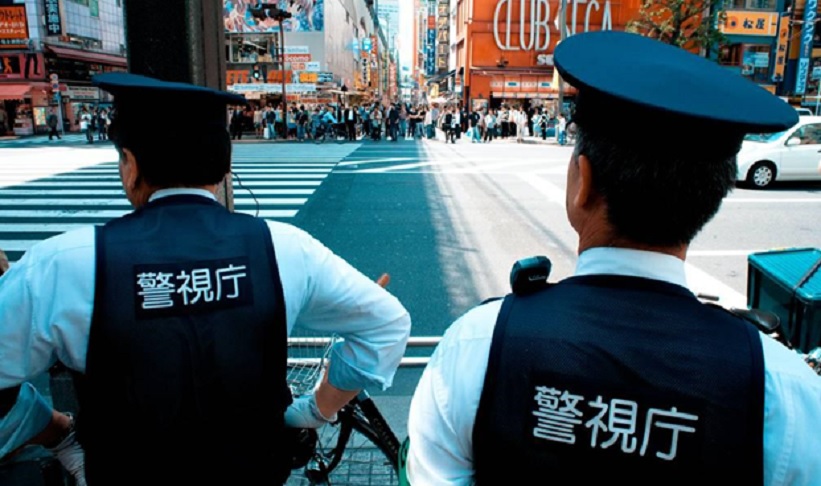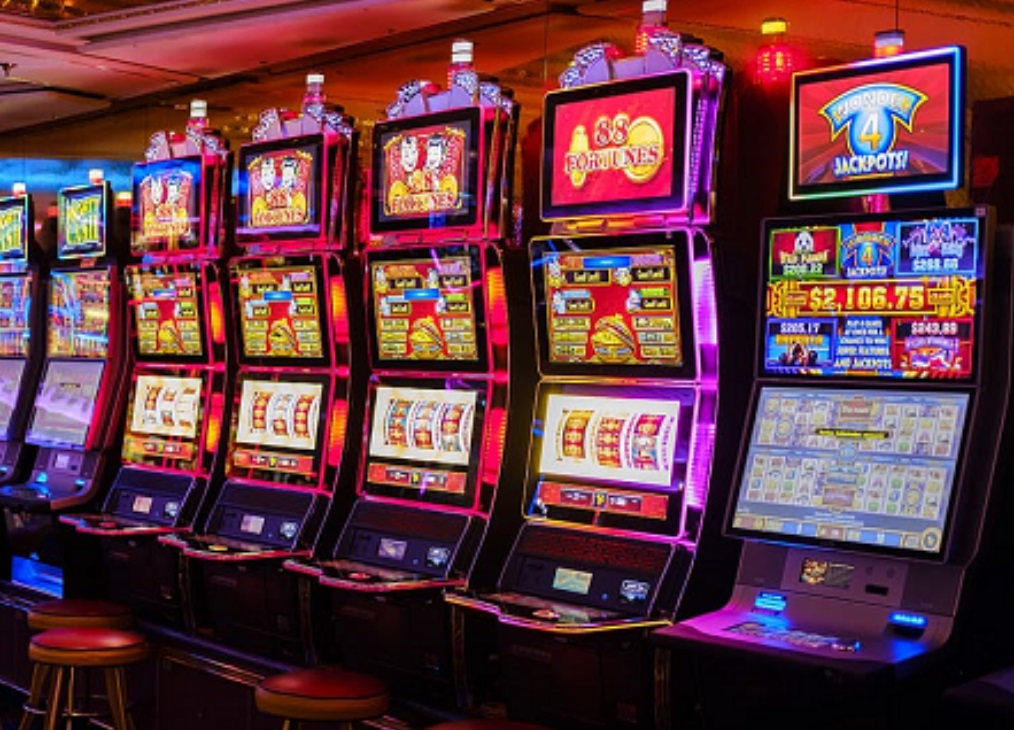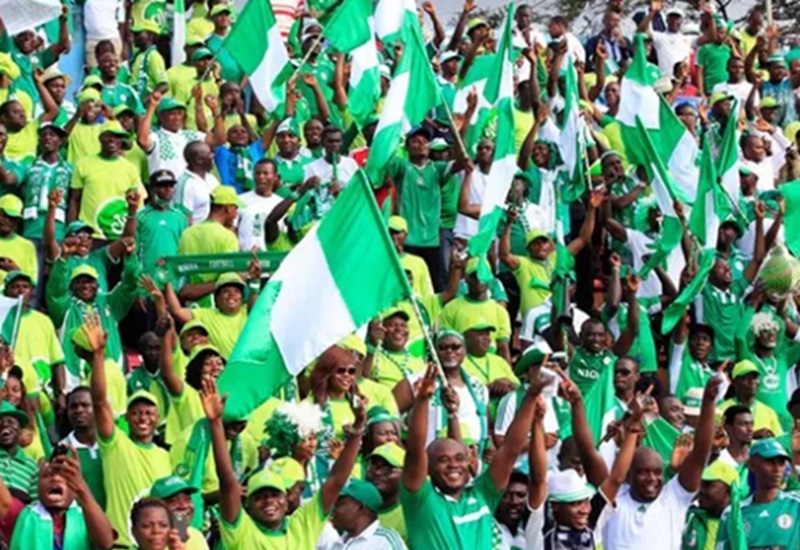Sports
Illegal Gambling & Integrated Resorts

Tokyo Illegal Gaming Operation Sees 8 Arrested
Earlier this week, it was reported that the Tokyo police had arrested several people for running an illegal gambling operation in a building located in the Kabukicho entertainment district. Of the 8 people that were taken into custody, 44-year-old Hiroshi Hitomi was the head of the operation and has confessed his crimes.
The Metropolitan police suspect that Hitomi’s operation is part of a bigger picture and that the revenue from illegal gambling funds certain gangs. These are all speculations; however, the police have evidence that Hitomi has been running the illegal casino since 2005 and since then has produced over 48 billion yen.
Not only did Hitomi allegedly run an underground illegal casino with a variety of casino games, but consumers could also gamble online. He supplied services 24 hours a day, seven days a week, and it is estimated that 70 to 80 regular players visited the premises each day.
Gambling is outlawed in Japan, with the exception of government-run gambling such as horse racing. At the moment, the only place where casino games can be played is in Japan’s online casinos. In order to fight Japan’s long-standing problem of illegal gambling, the government is considering the construction of Integrated Resorts. These resorts would offer a safe and controlled gambling atmosphere, as well as a variety of hotels, entertainment, and gaming alternatives. Integrated Resorts could lessen the appeal of illegal gambling while also generating additional income for the government by providing a legitimate alternative.
2018 Approval of Integrated Resorts
In July 2018, Japanese lawmakers passed a bill that legalized brick-and-mortar casinos in three locations within the country: Osaka, Wakayama, and Nagasaki. These casinos were to be part of “integrated resorts”, which encompassed hotels, shopping centers, conference rooms, and more. Prime Minister Shinzo Abe was a staunch supporter of the bill, hoping it would help boost the tourism industry and economy beyond the Tokyo area. This bill put Japan on the map in Asia as a gambling destination, joining the ranks of Macau, Hong Kong, and Singapore in offering lavish casino resorts.
Opposing Opinions
While many were pleased with the decision and the prospect of new job opportunities, others expressed their displeasure. Yukio Edano, a member of Japan’s Constitutional Democratic Party, stated that all of those job vacancies would be based on individuals losing money gaming and that a healthy economy could not be managed with casinos open.
Recently, the Governor of Osaka stated that when the integrated resort is created, because of the geography and the number of tourists, the resort will be able to function even without Japanese guests. In Osaka, however, there have been requests for referendums, contrary to the governor’s convictions. More than 200,000 signatures have been collected, indicating that citizens desire a public vote on the construction of an integrated resort in their city.
Safeguards
While there have been concerns, in the bill, there were several safeguards set. For example, to prevent addiction, Japanese players would have to pay an entry fee of $53 or 6000 yen and could visit the casino only 3 times a week or 10 times per month. On the other hand, more money would come in through the foreign tourists, with them having no visiting restrictions and no entry fee.
The Daiwa Institute of Research said that the three locations that were picked where those integrated resorts would be built could generate an initial revenue of $9 billion, plus $2 billion annually.
Fast Forward to Today
Close to six years have passed, and there have been no major improvements or big steps made by the government to make a final decision on the locations of the first two integrated resorts in Osaka and Nagasaki. The Ministry of Land, Infrastructure, Transport, and Tourism is still hesitant, even though it was said that a decision would be made by the end of 2022.
MGM Resorts International and ORIX Corp, a consortium interested in the Osaka proposal, still haven’t received the green light. The same goes for Casinos Austria International, which is awaiting approval for the Nagasaki proposal. Several other companies were interested in the project, however, with years and years of waiting and no information coming out, they have pulled out.
Future Steps
Increased occurrences of unlawful gambling, similar to the one in Tokyo, have enraged the public. Some feel that by integrating such complexes, crime rates will decrease because there will be no need for clandestine gaming sites like the one Hitomi ran. Others, on the other hand, fear that this will merely serve as fuel to a larger fire, luring more individuals into gaming.
For the time being, businesses and residents in the three locations, as well as the rest of Japan, can only wait for the Ministry of Land, Infrastructure, Transport, and Tourism to make a final decision.
Sports
Hash Game Guide for BC Game Gambling

The crypto casino industry has grown rapidly because players now demand more than just entertainment — they want verifiable fairness. Blockchain technology makes this possible through provably fair systems, where every result can be independently confirmed using cryptographic data. BC.Game has positioned itself as one of the most trusted platforms in this space, combining a wide game library with fast crypto payments and transparent mechanics. Hash Game is one of its standout titles: simple, fast, and fully auditable, making it an ideal starting point for anyone entering crypto gambling.
What Is Hash Game and How It Works
Hash Game is a provably fair betting game where each round’s result is determined by a cryptographic hash generated before any bets are placed. The outcome combines a server seed from the platform and a client seed from the player, making manipulation by either party mathematically impossible. Once the round ends, both seeds are revealed and can be used to verify the result independently. Players can learn the full mechanics in the official hash game guide, which covers exactly how the algorithm works and how to run their own verification.
Key features of Hash Game:
- Provably fair verification — every result auditable using published seed data
- Instant rounds — no waiting, results appear within seconds
- Beginner-friendly interface — minimal learning curve, straightforward controls
- Flexible bet sizes — suitable for low-stakes and high-volume players equally
- Full mobile compatibility — works seamlessly on Android and iOS
Why Players Choose BC Game Gambling Platform
The platform stands out through its consistent commitment to transparency, broad cryptocurrency support, and a reward system that delivers real value. It accepts over thirty cryptocurrencies and processes withdrawals quickly without relying on third-party payment processors. Every original game, including Hash Game, is built on provably fair technology that players can audit themselves. BC Game gambling has earned its reputation not through marketing but through a product that consistently performs: fair games, fast payments, and a platform that works as described.
| Feature | Details |
| Provably Fair | Fully verifiable results on every game |
| Supported Cryptos | 30+ cryptocurrencies accepted |
| Withdrawal Speed | Fast and secure processing |
| Mobile Support | Android and iOS compatible |
| Bonuses | Welcome bonus, reload offers, and VIP rewards |
Strategies to Improve Your Hash Game Results
Consistent results come from discipline, not luck. The most important habit is bankroll control: limit each bet to one to three percent of your session budget so that variance never ends a session prematurely. Adjust your threshold based on risk appetite — lower thresholds win more frequently at smaller margins, higher thresholds offer bigger returns with more volatility. Set a stop-loss before you start and treat it as non-negotiable. Players who want to go deeper can read more about risk management approaches that apply directly to fast-paced provably fair games.
Advantages of Hash Game Compared to Other Casino Games
Hash Game combines qualities that are rare to find in a single title. Rounds finish in seconds, giving players a high volume of action without long waits. The rules are minimal: nothing to memorise, no complex structure to navigate. Every result is cryptographically verifiable, which no slot machine or live dealer game can match. Crypto payments mean instant settlement with no processing delays. For players who value speed, fairness, and simplicity together, it is one of the strongest options available in the provably fair category.

Mobile Experience and Accessibility
The platform is fully optimised for mobile, and Hash Game is one of the best titles to play on a smaller screen. The clean layout and fast round structure translate perfectly to Android and iOS without any loss of functionality. Every feature, including bonus activation, VIP tracking, deposits, withdrawals, and support, is available on mobile exactly as it is on desktop. For players who prefer to gamble on the move, the experience is consistent and reliable regardless of device.
VIP Program and Long-Term Benefits
Every bet placed on Hash Game contributes to the platform’s VIP loyalty system. Because rounds are fast and frequent, points accumulate significantly quicker than on slower games. Higher tiers unlock cashback, rakeback, weekly bonuses, and dedicated support. The programme is structured so that long-term players receive progressively better conditions. For players treating crypto gambling as an ongoing activity, regular Hash Game sessions become a reliable source of additional rewards beyond individual results.
Hash Game Overview
Hash Game delivers exactly what a well-designed crypto casino game should: transparent outcomes, fast gameplay, simple rules, and flexible stakes. The provably fair system eliminates any need to trust the platform blindly, and the fast round structure makes it one of the most efficient titles for both casual sessions and serious play. Strong crypto support, a well-structured VIP programme, and a mobile experience that works without compromise round out the offering. For players who want a fair, fast, and genuinely rewarding crypto gambling experience, this is a clear and well-supported choice.
Sports
Which Football Competitions Drive the Highest Betting Payments in Nigeria?

Public payment-by-competition data is limited but that betting attention always centers on the top European football, specifically the EPL and UCL, plus the AFCON spikes in Nigeria.
First, payment volume by competition is not usually published publicly.
In reality, sportsbooks and payment processors do not generally get into the habit of publishing, in an auditable form, competition-by-competition payment breakdowns in a way that can be ranked, with precision, by the public. That is, any assertion that the EPL accounts for exactly X% of payments would be speculation unless supported by a published data set.
What can be said factually is which competitions tend to have the greatest attention from betting in Nigeria, which is based on repeated commentary by market players and patterns of observed consumption: football is clearly the most dominant, and the ones with the greatest amount of coverage, familiarity and weekly volume tend to drive the most consistent wagering behaviour.
In this article, we try to cast the highest payment volume in the form of a practical proxy: competitions that have the most definitive association with high and repeated betting activity.
Football’s weekly engine: never-ending leagues
The most significant driving force for betting-related payments is frequency. Weekly leagues introduce habitual behaviour: consistent deposits through multiple payment methods, steady in-play interest and constant opportunities for accumulators. These payment methods include bank transfers, cards, e-wallets, and others that can be deposited with PayPal. However, it is paramount that you check out the various payment and withdrawal methods offered by each bookmaker before placing your bets.
Within that structure, the English Premier League is widely considered to be the centre of gravity of Nigerian football attention. The reasons are simple and observable: It has good presence in the broadcaster world, it has massive fan bases of the key clubs, and has a full weekend slate which creates a steady rhythm to betting. When a competition is discussed every day, it is the go-to to bet after.
Behind it, other major European leagues (often featuring football’s top flight in Spain or Italy, football’s top flight, in betting parlay), benefit from the same frequency effect: weekly matches, recognisable clubs, widespread media coverage. Even bettors who profess their loyalty to one league, many still bet across the several European slates because the markets are never closed.
The prestige engine: European club competition
The UEFA Champions League is somewhat different to the domestic leagues. It doesn’t run every weekend, it comes in big nights. That structure tends to form spikes. Big clubs, knockout stakes, and trumped-up matchups draw attention. In payment terms this usually manifests itself in bursts: heavier deposits around big midweek ties, followed by a return to domestic routines at the weekend.
The Champions League also promotes different betting behaviour as well. Caused by their narratives; home legs, away goals history (now removed), second leg tactics, often punters go as much for “storey bets” as statistical bets. The result can be increased in-play engagement, and an increase in prop interest on marquee nights.
The national and continental engine: AFCON and major international tournaments
International tournaments like AFCON create a lot of betting activity in Nigeria especially when the national team is involved, or any time the international tournament is covered in the media. It comes in the shape of festival betting: concentrated, time-limited, emotionally charged.
Unlike the steady weekly flow of the EPL, AFCON has a tendency to be peaky during the window. Deposit can increase as people go back to wagering for the tournament, withdrawal can increase after decisive rounds. Even punters who play predominantly in club football often play AFCON when it is a special season for them.
Why these competitions dominate activity
There are three practical reasons as to why these competitions rise above the rest.
First is information. Bettors are more active when they believe that they know. High coverage competitions lead to endless analysis, highlights and discussion, which makes bettors feel confident, even with results remaining uncertain.
Second is market depth. The hottest competitions often have the smallest number of betting markets: match odds, totals, corners, cards, and a host of lines involving players. More markets equals more ways to bet, and can be translated into more transactions.
Third is social reinforcement. When everyone is watching the same leagues and tournaments, then betting forms part of the communal conversation. That social energy is what drives participation.
Bottom line
If by highest payment volume we talk about the competitions most consistently linked to heavy betting barrage, Nigeria’s centre of gravity is top European football, especially the EPL, followed by Champions League nights, other big European leagues and AFCON bursts during the tournament periods. It is nearly impossible to obtain exact payment volume data for each competition, so these precision rankings beyond these broad drivers can’t be found publicly, i.e., they’d have to be obtained internally by operators.
Sports
When Weather Hijacks Betting Odds

Weather conditions such as rain, wind, snow, or extreme heat could have an impact on the nature of both teams’ style of play, the way that goals might happen, and the way they are priced by bookmakers like 1xbet. Therefore, in recent years, the weather has been seen as one of the quickest, non-visible influences on wagering and gambling.
In the final hours leading up to a game, many individuals who wager money will either check the weather or look to confirm it has been altered before they access the relevant sites to wager on the game. The result is often that there has been a change in price immediately after the event has been confirmed. There is no requirement for a weather press conference to take place, as weather conditions will dictate when to make price adjustments.
Mobile alerts make weather-driven moves faster
Modern weather surprises spread instantly in modern betting with radar images on social media; waves of bets have begun flooding in before even national broadcasters are reporting current weather conditions. The overwhelming influence of weather bets is multiplied by players being able to place their wagers using mobile devices, as they are able to follow thick and thin markets by paying close attention to their mobile betting devices via 1xbet apk, to be ready and able to react immediately when weather-related news breaks. When rain starts to come down heavily or winds start to pick up, bettors adjust their expectations and place bets on things like totals, corners, and/or cards, respectively.
The fact that bets can be processed and accepted instantly when betting with mobile devices provides tremendous value and importance to how pre-match odds can be pushed up and down quickly, even though the movements in pre-match odds may have been created with only a small portion of the total stake being made by the total number of bettors.
Why wind and rain hit the goal markets first
Players from getting enough distance on long balls, which can cause problems with crossing the ball. Heavy rainfall can affect pass accuracy and create unexpected deflections due to players slipping or losing their footing. High temperatures can affect the pace of play and increase fatigue.
Bookmakers commonly will alter goal-related markets first when weather has a significant impact on shot quality and chance conversion. If the pitch is heavy, teams may be able to create attacking chances but not be able to finish them. Strong winds can disrupt how set pieces are taken, which makes them unpredictable.
Typical types of weather effects that drive odds adjustments include:
- strong wind reducing the accuracy of crosses and long shots;
- heavy rain reducing pace of play and increases slips, getting muddy pass accuracy and less cleanly taken.
- waterlogged playing surface, creating difficult passing;
- very high temperatures causing slower second halfs;
- and cold weather reduces stamina and touch.
These elements affect total point spread lines and sometimes also point spread lines in instances where either team is using more of a certain style of play.
How odds shifts look when the forecast changes
Weather-based movement often follows a recognizable sequence: forecast update, market pause, then adjustment. It can happen in minutes.
| Weather shift before kickoff | What bettors expect | Where odds usually move |
| Wind picks up sharply | Fewer clean chances | Under goals shortens |
| Heavy rain starts | Slower play, more mistakes | Totals and corners adjust |
| Heat wave confirmed | Lower tempo late | Second-half totals drift |
| Sudden storm warning | Match may stop or delay | Markets suspend briefly |
| Pitch declared heavy | Physical game, fewer patterns | Cards and unders tighten |
The public reacts late, the market reacts early
Oddsmakers adjust the line in their favor before the average bettor has even thought to make a wager on a particular matchup. Many recreational players are betting based on team name and recency—weather is an afterthought, if that at all.
Trained bettors will typically make their move much earlier in the process by being tuned into the weather forecast and any stadium information. Once they get their money in early, the oddsmakers adjust the odds and the recreational players will wager at a different price.
That’s why the weather has such a huge ability to create a “pre-match surprise”; it can quickly change assumptions and betting markets are based on assumptions.
Smart ways to handle weather-driven chaos
The weather offers chance and also risk. Quick checklists come in handy when making smart choices:
- Check the current market movement before betting on a new weather event.
- Don’t accept forecast headlines generally; look back for context.
- Assess style of play: crossing the touchline, tempo, and physical size.
- Don’t rely solely on morning weather updates; check late changes to match timing as well.
- Be cautious when betting on the live market after the weather created chaos.
The forecast does not match, but the forecast could create a change to the match, which can createa change to the odds.
Weather is not background noise anymore
Today’s weather plays a major factor in today’s gaming and gambling markets. Weather conditions can completely alter game pace and a gambler’s approach to betting. Many times, sportsbooks have to adjust pricing for an entire section of the board at the last minute due to these changing weather patterns.
The important piece is understanding the reasons behind odds movement in order to take advantage of them rather than just noticing they have moved. As weather conditions change at the end of a sporting event, the betting market is reacting to uncertainty, and when uncertainty increases, the odds do not typically remain as displayed on the betting screens.
-

 Feature/OPED6 years ago
Feature/OPED6 years agoDavos was Different this year
-
Travel/Tourism10 years ago
Lagos Seals Western Lodge Hotel In Ikorodu
-

 Showbiz3 years ago
Showbiz3 years agoEstranged Lover Releases Videos of Empress Njamah Bathing
-

 Banking8 years ago
Banking8 years agoSort Codes of GTBank Branches in Nigeria
-

 Economy3 years ago
Economy3 years agoSubsidy Removal: CNG at N130 Per Litre Cheaper Than Petrol—IPMAN
-

 Banking3 years ago
Banking3 years agoSort Codes of UBA Branches in Nigeria
-

 Banking3 years ago
Banking3 years agoFirst Bank Announces Planned Downtime
-

 Sports3 years ago
Sports3 years agoHighest Paid Nigerian Footballer – How Much Do Nigerian Footballers Earn









